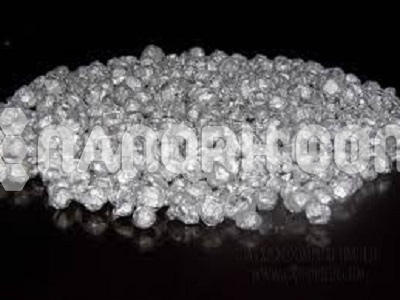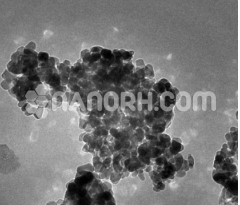Calcium Granules (Size: 0.8-6mm, Purity: >97%)
| Calcium Granules | |
| Product No | NRE-52009 |
| CAS No. | 7440-70-2 |
| Formula | Ca |
| Purity | >97% |
| Size | 0.8 – 6mm |
| Color | Black Gray |
| Molecular Weight | 40.08g/mol |
| Density | 1.54 g/Ml |
| Melting Point | 839 °C |
| Boiling Point | 1484 °C |
| Thermal Conductivity | 2.01 W/cm/K @ 298.2 K |
Calcium Granules
Calcium granules have several industrial, scientific, and agricultural applications due to their unique chemical properties and reactivity. Here are some of the key applications of calcium granules:
Metallurgy
Deoxidation: Calcium granules are used in metallurgy to deoxidize molten steel and other metals. Calcium helps remove oxygen and other impurities from the metal, improving its quality and properties.
Alloy Production: Calcium is used in the production of various alloys. For instance, it can be added to aluminum to improve its mechanical properties and castability.
Chemical Industry
Chemical Reactions: Calcium granules are used as a reactant in various chemical processes. They can be involved in the production of calcium compounds, such as calcium carbide (used in producing acetylene) and calcium hypochlorite (used as a disinfectant).
Catalysts: Calcium can serve as a catalyst or catalyst support in certain chemical reactions, including those involved in organic synthesis and industrial chemistry.
Agriculture
Soil Amendment: Calcium granules are used to amend acidic soils. Calcium carbonate (CaCO₃), in granular form, is applied to soils to neutralize acidity and improve soil fertility.
Fertilizers: Calcium is a key nutrient for plant growth. Granulated forms of calcium, such as calcium nitrate and calcium sulfate, are used in fertilizers to provide essential nutrients to crops.
Water Treatment
Water Softening: Calcium granules are used in water treatment to soften hard water. Calcium ions help in precipitating out unwanted minerals, thereby reducing water hardness.
pH Adjustment: Calcium compounds can be used to adjust the pH of water in various treatment processes, including municipal water systems and industrial water treatment.
Construction Materials
Cement Production: Calcium is a critical component in the production of cement. Calcium carbonate is used as a raw material in cement manufacturing, where it reacts with other ingredients to form clinker.
Concrete: Calcium compounds, such as calcium chloride, are used to accelerate the setting time of concrete and improve its strength.




